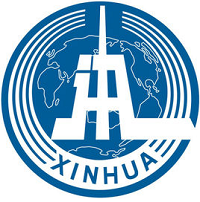It is not the bad bilateral bond between them but history that calls for China and the US to build a new type of major power relations
With history beckoning, the way to handle China-US relations is not to pursue the best scenario, but to avoid the worst. This will not be achieved without the realization of a new type of major power relations. In other words, building a new type of major power relations should not be an option but an inevitable trend.
However, there are several key perception gaps between the two countries concerning the new model for relations between them, and these show how difficult it will be to build up the necessary strategic trust to create the new type of major power relations.
First, the two countries have distinct rationales for the new type of relations they envision. For the US, the focus is on its current desire to prevent China from further challenging its role in the Asia-Pacific and the rule-based international system in its favor. It is a seen as a way to reinforce the US' global leadership. China, on the other hand, is looking beyond the times. For China, relations with the US will be of crucial influence to the world this century, as they share the responsibility for establishing the new world order. China-US relations and a new type of great power relations are not the same thing. It is not the bad bilateral bond that calls for a new type of relations, but the call of history. China is seeking to avoid the Thucydides trap, the conflict between a rising power and an established power. It is not leadership, but mutual respect that China seeks; the acknowledgement by the US that it is a great power.
Second, Chinese and Americans have different concepts of what constitutes this new type of relations. The Chinese see themselves as creating a new type of major country relations, since the distinction of being a "great power" is associated with the Western powers that invaded and colonized China. Americans, on the other hand, have no qualms about calling it a new model of great power relations, since they do not identify their country as just a major country. At the same time, the US focuses on the current working model of the relations, different from the Chinese pursuit of a new paradigm of relations for the future. Maybe, the two sides should meet somewhere in the middle and call it a new type of relations between big countries.
Third, China has explicitly laid out several guidelines for the new type of relations, namely: no conflict, no confrontation, mutual respect and win-win cooperation. However, for the US, the new type of relations is more of a working model, with an emphasis on accumulative effects. That is to say, the confidence of the US in it will be enhanced if China further coordinates with the US on issues such as the nuclear programs of the Democratic People's Republic of Korea and Iran, or the situation in Syria and Iraq. At the same time, the US cannot make a commitment to no conflict, because of its system of alliances. If the US adopted China's principles of no conflict and no confrontation, its allies would start to worry they were being sacrificed in US' pursuit of a new type of relations with China, and they would start to question the US' role as their leader. In fact, China means strategic confrontation rather than tactical conflict. The US also worries that if it accepts mutual respect principle, then it will not be able to interfere in China's domestic affairs and it will have to keep away from China's core national interests, which are against its values-based diplomacy and its role as global leader. As for win-win cooperation, the US still complains that China rejected its "G2" initiative four years ago, so why should the US accept China's proposal now.
Fourth, China and the US also have different roadmaps of how to build a new type of relations. The US considers it to be an aspiration for China to achieve, not a task for both, and it favors a process that starts with individual issues that it decides on. China, however, considers it quite urgent to do so and has divided the process into three parts based on its assessment of strategic trust between the two countries. This comprises a suspicion-eliminating stage, a trust-accumulating stage and a habit-formation stage.
Fifth, China believes that difficulties and differences can be overcome and a new type of relations formed with hard work, but in the US it is merely a political slogan. Nonetheless, Americans are less anxious about the possible consequences of a failure to build a new type of relations than the Chinese, who fear that there is much to lose since the historical tragedy identified by Thucydides may reoccur.
Some suggest China is using the concept of a new type of relations between great powers to buy time in order to develop its comprehensive strength, but China is merely trying to erase strategic distrust, forge consensus, and facilitate common actions.
The differences and misunderstandings that stand in the way of establishing a new type of great power relations between China and the US need to be resolved. Whether a new type of relations acceptable to both can be built or not, will determine the fundamental trends of international politics and the world order. US President Barack Obama is soon to meet Chinese President Xi again, and this meeting is an opportunity to narrow the gaps that exist between the two countries.
Yiwei Wang is a professor with the School of International Studies and director of the Institute of International Affairs, Renmin University of China.

